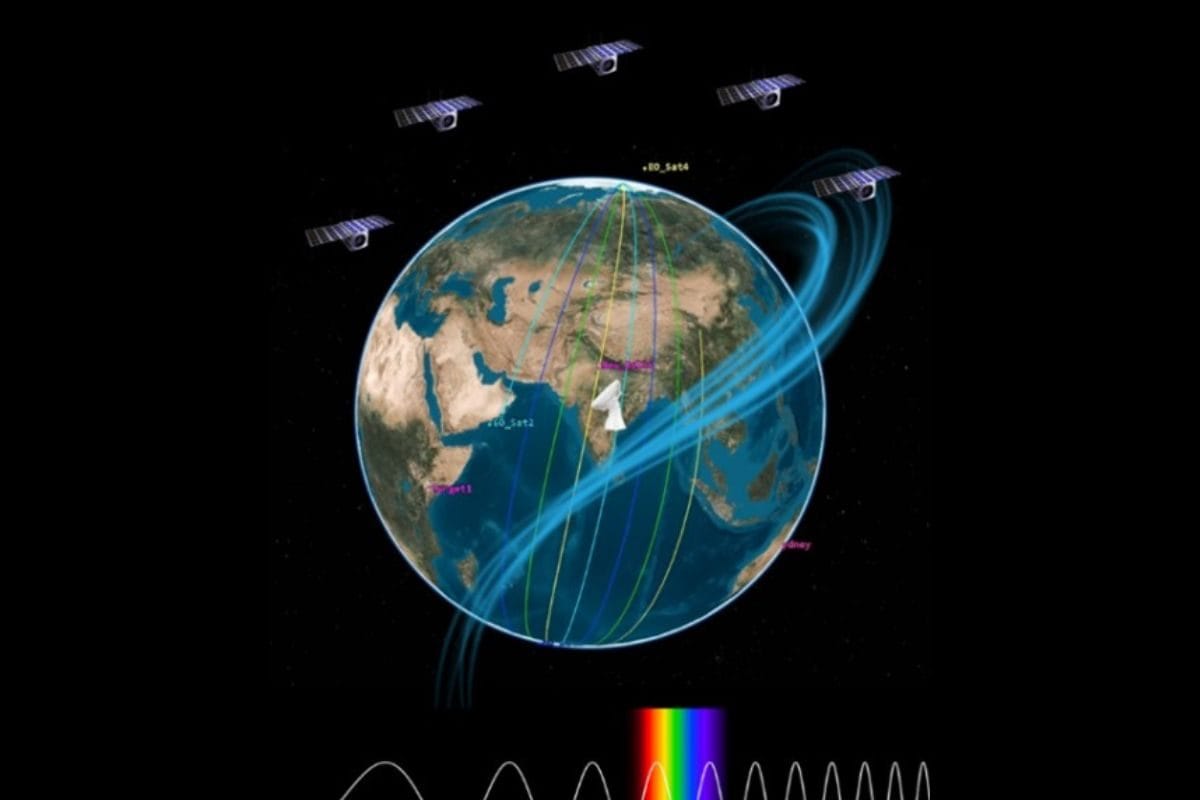The project will be developed under a Public-Private Partnership (PPP) model with financial support from the government. The target is to boost India’s private space economy by generating more demand and thus reduce the dependency on foreign satellite players
After opening the doors for start-ups in 2020, the government is now looking to build a private earth-observation satellite constellation. The Indian National Space Promotion and Authorisation Centre (IN-SPACe) has sought Expression of Interest (EoI) from space start-ups to develop the satellites in Public Private Partnership (PPP) mode with financial support from the government.
The project is currently in a formative stage, and the Space Commission has approved the basic framework, the government told Parliament during the ongoing Budget session. “This will help generate demand for private start-ups which have grown steadily in the last few years,” Pawan Goenka, Chairman, IN-SPACe, told News18.
With the latest move, the government plans to reduce the dependency on foreign satellite companies and boost the country’s space economy by enabling local start-ups to build, operate and own the space-based earth-observation system. Currently, India sources most of the earth-observation data from the Indian Space Research Organisation (ISRO) which operates one of the largest constellations of remote-sensing satellites — as well as from multiple foreign satellites.
WHAT IS THE PLAN?
As per the details accessed by News18, the start-ups will have the opportunity to monetise the space data and build presence in the global geo-spatial market. This is also likely to help position India as a major global data provider. Since the project involves high capital expenditure, a PPP mode was chosen with financial support from the government.
The selected start-up will design, build, operate and own the constellation, and establish/hire ground segment both for spacecraft control, and data-download. It will also be required to establish its own Spacecraft Control Centre (SCC) or hire ground stations, and set up a sustainable industry model to manufacture, periodically upgrade the designs and launch as per the market demand.
A constellation is essentially a group of similar satellites which work together as a unit. Remote-sensing satellites are extremely crucial as they provide a wealth of data for informed decision-making by the government in numerous fields — environment, disaster-mitigation, agriculture, weather, infrastructure development, and support a wide range of consumer-based applications.
GENERATE DEMAND, REDUCE DEPENDENCY ON FOREIGN SATELLITE PLAYERS
One of the objectives of the government is to boost the private space economy which has grown with as many as 229 space start-ups registered. IN-SPACe is also working with several departments to generate applications to create more demand.
“We are also in the process of estimating what the future demand of communication satellites would be and once we have that, we will get the private sector to come in and start launching satellites for communications, so that will also generate demand,” said Pawan Goenka, Chairman, IN-SPACe, to News18.
The government has also announced Rs 1,000 crore Venture Capital (VC) fund in the recent Union Budget 2024 to financially support the emerging space start-ups. It is estimated to benefit at least 30 start-ups which have a viable business plan. ISRO has been providing technical support to the start-ups for launch vehicle building, satellite development, space applications as well as ground systems.
“Our target is to take India’s space economy from the current $8.5 to $45 billion — increase nearly five times in 10 years. So first, we must provide support to our emerging space start-ups, generate demand for space activity — both upstream services like satellites, launch vehicles, or downstream services like generating space data and applications, and then strengthen our supply side too,” said Goenka.
India’s space economy currently stands at around $8.4 billion. Despite being among the top five space-faring nations in the world, its share in the global space economy stands at just 2 per cent. The government has set a target of taking this to nearly $44 billion by 2033, making it 7-8 per cent of the global economy.

